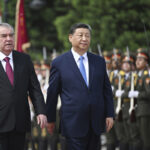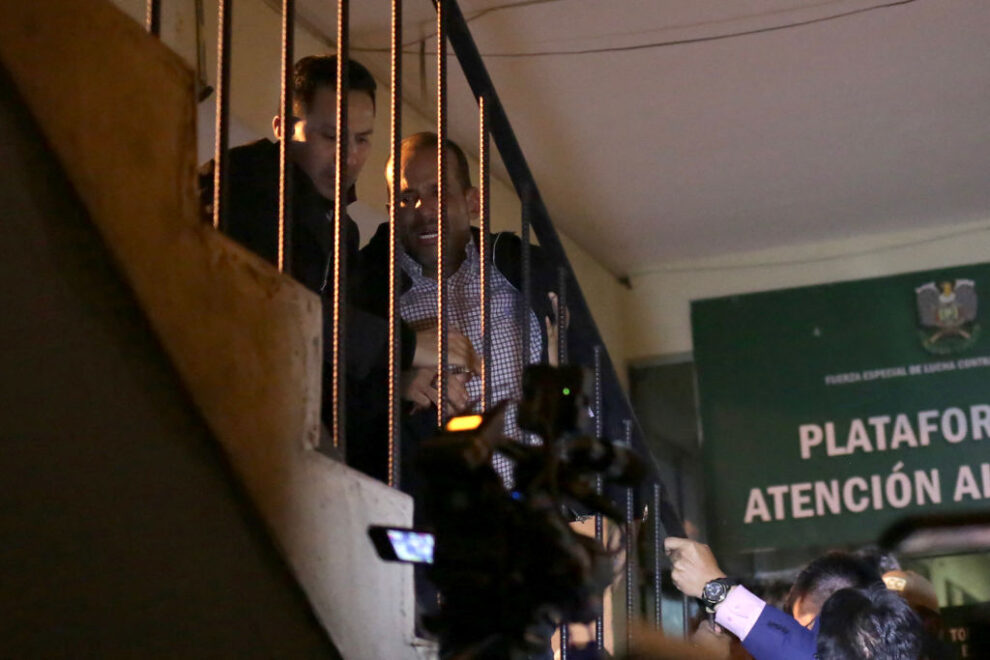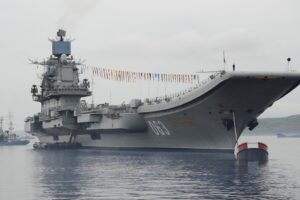The arrest of opposition leader Luis Fernando Camacho has set off protests and raised worries about the political process in the country.
The arrest of the governor of Santa Cruz department and opposition leader Luis Fernando Camacho on December 28 was so unexpected that many in Bolivia believed that it was an April Fools’ joke—a holiday which, in Latin America, is celebrated on December 28. When they received the news, some media outlets withheld their reports until they were sure that it was not a joke.
This shows how controversial Camacho’s arrest is. No one imagined that the government would detain a personality of such stature, leader of the most populated and economically strongest region of the country, besides being the center of the opposition to the regime of President Luis Arce. The move raised concerns that Bolivia could be well on its way towards taking its place among countries in the region like Nicaragua, where the democratic process is obstructed by the imprisonment of opposition figures.
An order was issued last October for Camacho to appear before a prosecutor’s office in La Paz on charges of “terrorism,” but his lawyers demanded that Camacho do so in Santa Cruz, his place of residence. In the midst of this legal discussion came his arrest, which took place as tensions run high between the capital, La Paz, and Santa Cruz over the timing of a postponed national census that many expect to give more political influence to a growing Santa Cruz. The department is located in the Bolivian lowlands and its economy is based on agribusiness and cattle raising.
After Camacho’s arrest, in which an elite police unit fired guns and broke the windows of the governor’s security vehicles, Camacho’s whereabouts were unknown for several hours until it was learned that he had been transferred to La Paz by helicopter. A seven-hour court hearing that same day determined his pretrial detention for four months in a high-security prison, located 4,000 meters above sea level in the cold Bolivian altiplano. The Chonchocoro prison holds dangerous detainees, many accused of murder, rape and drug trafficking. Some 25 detainees have died in Chonchocoro, due to fights between inmates and other reasons, since its inauguration in 1992. Five others “committed suicide” in strange circumstances.
The population of Santa Cruz reacted immediately. On the night of Camacho’s apprehension began a series of violent protests, which take place mainly at night and which, as of the night of January 4, had been going on for eight consecutive days. During the protests several public offices were looted and set on fire, vehicles burned and private property was destroyed. The demonstrations met with a forceful police response. Policemen have fired tear gas and pellet guns at point-blank range, injuring dozens of people, including journalists.
Shades of 2019
Camacho’s arrest comes as part of a government investigation into what it alleges was a coup d’état that occurred in November 2019, forcing the resignation of Evo Morales (who belongs to MAS, the same party as current President Luis Arce). Morales tried to be reelected for a fourth term, in violation of the Bolivian constitution, and resigned after massive opposition demonstrations were organized when an OAS delegation said that the October 2019 elections were plagued by irregularities. (Later, an independent report argued there were flaws with some of the OAS’s conclusions.)
Morales and his supporters claim that there was a coup d’état because the Armed Forces “suggested” that he resign, but in later months, even by the former president’s own statements, it became known that Morales took the decision to resign the day before that “suggestion.” His autobiographical book, We Will Return and Be Millions, states that he decided to resign on November 9, when he lost the support of a then ally, the Central Obrera Boliviana (COB), which coordinates Bolivian trade unions.
In another book, entitled Evo: Operation Rescue, by the Spanish author Alfredo Serrano, Morales’ former vice-president, Álvaro Garcia Linera, confirmed this version of events. García Linera is quoted as saying that on November 10, at 10 in the morning, he told former Argentinean president Cristina Fernández that Evo had decided to resign. The Armed Forces made their suggestion at 3:50 pm on that day and Morales announced his resignation approximately one hour later.
In addition, two opposition leaders confirmed that a few hours before the Armed Forces’ “suggestion,” Morales sent two delegates from his party to negotiate the transition, on the understanding that he had decided to leave office. That meeting took place at around 3:00 p.m. The two Morales delegates in question have not denied this version of events.
In spite of this evidence, the MAS tries to maintain its version of events because it is a way to reduce Morales’ shame. It is more dignified to leave office in a coup d’état than after popular protests. After Morales’ fall, Arce, his current spokesman, Jorge Richter, and his secretary of Justice, Iván Lima, said that Morales’ successor, Jeanine Añez, ran a “constitutional” presidency.
During the Añez government, MAS controlled two thirds of Congress and, in two votes, ratified the legality of the transition government. But now Morales, Arce and company insist on a different version of events.
César Muñoz, of Human Rights Watch, has pointed out that in Bolivia the figure of “terrorism” is used indiscriminately to accuse political adversaries. In this category is former president Añez, sentenced to 10 years in prison on charges of “breach of duties” and “resolutions contrary to the Constitution,” precisely to demonstrate that her ascension to power was unconstitutional. Añez was sentenced by a criminal court despite the fact that the Bolivian Constitution establishes that a former president can only be tried by Congress. As the ruling party does not have two thirds of the votes necessary to do so, it used criminal justice instead.
In an address posted on social media, former President Carlos Mesa said that there are 188 political prisoners in Bolivia, Añez and Camacho being the two most important. Among those arrested are dozens of police and military officers who participated in the transitional government, and some social leaders, such as Marco Antonio Pumari, accused without proof of having encouraged the burning of the electoral authority’s headquarters in Potosí, his home department.
The protests in Santa Cruz have an air of desperation, as if the country’s future is on the line. Former presidents Mesa and Jorge Quiroga, as well as opposition leader Samuel Doria Medina and others are also accused, together with Camacho, of having participated in the 2019 “coup d’état.” If the government manages to control the situation in Santa Cruz, or the protests subside in the coming days, it is very likely that those accused will also be arrested.
If the authorities took this step with Camacho, who is able to mobilize large numbers of people, they are likely capable of doing so with the rest. A precedent has been set that opposition mayors and governors might face up to dozens of trials each. Such is the case of Iván Arias of La Paz, who in less than two years of tenure has accumulated 21 judicial processes against him. He has complained of having “more (judicial) cases than months in office.”
Bolivian pundits continue to speculate why Arce, elected in October 2020, made such an unexpected decision as to arrest Camacho, an action known to be unpopular. A survey conducted on December 29 that found that 61% of the population rejects the governor’s detention and that Arce’s popularity fell to 26%, the lowest figure of his administration.
Why did Arce do it, then? To accelerate the path towards a more explicit authoritarianism? To reassure Morales, who has rudely criticized him in recent weeks, calling him lukewarm and a traitor to the MAS? The Bolivian opposition has no doubts, warning the country is heading towards a situation like Venezuela or Nicaragua: one in which a strong government competes in elections, but where the most important opposition leaders cannot participate because they are behind bars.
Source: America Squar Terly
















